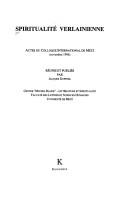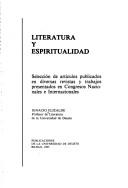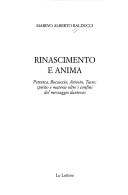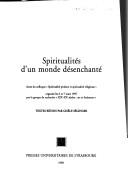| Listing 1 - 10 of 102 | << page >> |
Sort by
|
Book
ISBN: 2226188541 9782226188540 Year: 2010 Publisher: Paris: Albin Michel,
Abstract | Keywords | Export | Availability | Bookmark
 Loading...
Loading...Choose an application
- Reference Manager
- EndNote
- RefWorks (Direct export to RefWorks)
Book
Year: 2020 Publisher: Stockholm : Stockholm University Press,
Abstract | Keywords | Export | Availability | Bookmark
 Loading...
Loading...Choose an application
- Reference Manager
- EndNote
- RefWorks (Direct export to RefWorks)
"By invoking Flora Nwapa, this monograph draws attention to Nigerian women writers in world literature, with an emphasis on femininity and spirituality. Flora Nwapa's Efuru (1966) was the first internationally published novel in English by a female African writer. With the establishment of Tana Press in 1977, Flora Nwapa also became the first female publisher in Africa. Although Flora Nwapa has been recognized as the 'mother of modern African literature', she is not sufficiently acknowledged in world literary canons or world literature studies, which is something this monograph aspires to redress, with the help of earlier studies, especially Nigerian scholarship. Drawing on the Efuru@50 celebration in Nigeria in 2016, this book explores the revival of Flora Nwapa's fame as the pioneer of African women's literature. Using an ethnographic rather than biographical approach, it captures Flora Nwapa's literary practice in the context of the Nigerian literary scene and its interlinkages with world literature. The ethnographic portrayal of Flora Nwapa is complemented with an exposé of a select number of contemporary Nigerian women writers, based on interviews during fieldwork in Nigeria. The book uses concepts like creolized aesthetics and womanist worldmaking to advance scholarly understandings of world literature, which is conceived here as a pluriverse of aesthetic worlds. Exploring experimental ethnographic writing, the book combines the genres of creative non-fiction, descriptive ethnography and scholarly analysis, in an effort to make the text more accessible to academic as well as non-academic readers. Through travel notes the experience of fieldwork is shared in a candid manner. Detailed ethnography from the Efuru@50 literary festival is presented to show the expansion of Flora Nwapa's fame. In-depth analyses of Flora Nwapa's literary works and the cultural context of her literary practice cover a wide range of themes, from feminine storytelling and children's literature, to publishing and digitalization. The theoretical discussion draws on anthropological, literary and African womanist theory to contextualize and explore the central themes of femininity and spirituality in world literature. Inspired by the social change perspective of African womanism and critical decolonial theory, the book makes a contribution to current efforts to explore a more socially just and environmentally sustainable world of many worlds. Paying close attention to gender complementarity and sacred engagements in Flora Nwapa's literary worldmaking, it shows how world literature can help us create other possible worlds of human, spiritual and environmental coexistence."
Book
ISBN: 9004647740 Year: 1988 Publisher: Amsterdam : BRILL,
Abstract | Keywords | Export | Availability | Bookmark
 Loading...
Loading...Choose an application
- Reference Manager
- EndNote
- RefWorks (Direct export to RefWorks)
Book
Year: 2020 Publisher: Stockholm : Stockholm University Press,
Abstract | Keywords | Export | Availability | Bookmark
 Loading...
Loading...Choose an application
- Reference Manager
- EndNote
- RefWorks (Direct export to RefWorks)
"By invoking Flora Nwapa, this monograph draws attention to Nigerian women writers in world literature, with an emphasis on femininity and spirituality. Flora Nwapa's Efuru (1966) was the first internationally published novel in English by a female African writer. With the establishment of Tana Press in 1977, Flora Nwapa also became the first female publisher in Africa. Although Flora Nwapa has been recognized as the 'mother of modern African literature', she is not sufficiently acknowledged in world literary canons or world literature studies, which is something this monograph aspires to redress, with the help of earlier studies, especially Nigerian scholarship. Drawing on the Efuru@50 celebration in Nigeria in 2016, this book explores the revival of Flora Nwapa's fame as the pioneer of African women's literature. Using an ethnographic rather than biographical approach, it captures Flora Nwapa's literary practice in the context of the Nigerian literary scene and its interlinkages with world literature. The ethnographic portrayal of Flora Nwapa is complemented with an exposé of a select number of contemporary Nigerian women writers, based on interviews during fieldwork in Nigeria. The book uses concepts like creolized aesthetics and womanist worldmaking to advance scholarly understandings of world literature, which is conceived here as a pluriverse of aesthetic worlds. Exploring experimental ethnographic writing, the book combines the genres of creative non-fiction, descriptive ethnography and scholarly analysis, in an effort to make the text more accessible to academic as well as non-academic readers. Through travel notes the experience of fieldwork is shared in a candid manner. Detailed ethnography from the Efuru@50 literary festival is presented to show the expansion of Flora Nwapa's fame. In-depth analyses of Flora Nwapa's literary works and the cultural context of her literary practice cover a wide range of themes, from feminine storytelling and children's literature, to publishing and digitalization. The theoretical discussion draws on anthropological, literary and African womanist theory to contextualize and explore the central themes of femininity and spirituality in world literature. Inspired by the social change perspective of African womanism and critical decolonial theory, the book makes a contribution to current efforts to explore a more socially just and environmentally sustainable world of many worlds. Paying close attention to gender complementarity and sacred engagements in Flora Nwapa's literary worldmaking, it shows how world literature can help us create other possible worlds of human, spiritual and environmental coexistence."

ISBN: 2252031719 9782252031711 Year: 1997 Volume: 54 Publisher: Paris Klincksieck
Abstract | Keywords | Export | Availability | Bookmark
 Loading...
Loading...Choose an application
- Reference Manager
- EndNote
- RefWorks (Direct export to RefWorks)
Book
ISSN: 14244802 ISBN: 1299411274 3035200149 Year: 2010 Volume: v. 17 Publisher: Bern ; New York : Peter Lang,
Abstract | Keywords | Export | Availability | Bookmark
 Loading...
Loading...Choose an application
- Reference Manager
- EndNote
- RefWorks (Direct export to RefWorks)
Cet ouvrage, partiellement issu de réflexions engagées lors du colloque interdisciplinaire « Textes sacrés, Arts et Sciences » (dirigé par Mélanie Adda, INHA, Paris, 11-12 janvier 2008), traite dans une double perspective de la relation entre les textes sacrés et la culture profane qui s'y rapporte ou qui s'y heurte. Les auteurs se sont d'abord interrogés sur la possibilité d'une définition en intension de la sacralité textuelle. En observant le devenir de critères propre à la définir (comme l'origine divine) dans des contextes aussi différents que le judaïsme hellénistique, le Moyen Âge chrétien ou encore le confucianisme, les études de ce volume mettent en lumière la complexité de la notion de texte sacré, qui ne peut sans doute recevoir d'autre définition qu'en extension. L'autre objectif de ce recueil est d'étudier la réception des textes sacrés dans les civilisations et les cultures profanes dont ils sont les principaux fondements, en observant non seulement le statut que l'objet profane reconnaît au texte sacré auquel il emprunte, se consacre ou s'oppose, mais aussi le statut que ce même objet profane s'attribue alors à lui-même ou se voit attribuer. Ce double aspect de la réception du texte sacré est étudié à travers diverses productions culturelles, des plus directement liées à la source sacrée - comme les apocryphes, les traductions, l'exégèse et les enluminures -, aux plus indépendantes - comme la création littéraire -, en passant par celles qui, comme certaines sciences positives, doivent contourner le texte sacré, ou encore celles qui le détournent à des fins polémiques ou politiques. «[T]his is an invaluable way into French reception criticism for biblical scholars [...].» (John F.A. Sawyer, Relegere: Studies in Religion and Reception)

ISBN: 8474850401 Year: 1983 Publisher: Bilbao
Abstract | Keywords | Export | Availability | Bookmark
 Loading...
Loading...Choose an application
- Reference Manager
- EndNote
- RefWorks (Direct export to RefWorks)
Spanish literature --- Spirituality in literature. --- History and criticism.
Book
ISBN: 9782252030677 2252030674 Year: 1996 Publisher: Metz: Université de Metz. Centre Michel Baude Littérature et spiritualité,
Abstract | Keywords | Export | Availability | Bookmark
 Loading...
Loading...Choose an application
- Reference Manager
- EndNote
- RefWorks (Direct export to RefWorks)
French literature --- Classicism in literature. --- Spirituality in literature. --- Hennequin, Jacques

ISBN: 8871669908 9788871669908 Year: 2006 Publisher: Firenze: Le Lettere,
Abstract | Keywords | Export | Availability | Bookmark
 Loading...
Loading...Choose an application
- Reference Manager
- EndNote
- RefWorks (Direct export to RefWorks)
Questo volume nasce dal desiderio di comprendere come i maggiori scrittori e poeti italiani dal Trecento al Cinquecento si siano posti di fronte al messaggio liberatorio della Divina Commedia sul destino dell'anima e il suo possibile affrancamento dal dolore. In quattro diversi percorsi ermeneutici, viene analizzato inizialmente il tòpos del 'rispecchiamento narcisistico' nel Canzoniere petrarchesco, assieme a quello della 'spiritualità occultata' nella generale struttura del Decameron: un'opera che ha il coraggio di basarsi sul 'femminino' come emblema del 'sentire' a cui cristianamente si riconosce il potere di ristrutturare e purificare l'umano. In seguito, dedicandosi all'Orlando furioso, l'analisi si incentra sul personaggio di Olimpia e sul motivo della 'donna abbandonata', esaminando le differenze fra la prospettiva del razionalismo materialista lucreziano e quella ironico-scettica della sensibilità ariostesca. L'ultima indagine - la più impegnativa - presenta un'interpretazione della Gerusalemme liberata come esempio di un diverso concetto di èpos, rispetto a quello greco-latino, che ogni volta, sulla scorta dell'esempio dantesco del pellegrino 'smarrito' ed 'esiliato', mostra come la vittoria dell'eroe nuovo possa in fine compiersi, ma solo a patto di un terribile rinnegamento dell' 'io' razionale, nell'incontro con la 'bestia' inconscia che divora, generando abbandono alla funzione rinnovatrice, al Segreto dell'anima.
Italian literature --- Italian literature --- Soul in literature --- Spirituality in literature

ISBN: 9782868200006 2868200001 Year: 1998 Publisher: Strasbourg: Presses universitaires de Strasbourg,
Abstract | Keywords | Export | Availability | Bookmark
 Loading...
Loading...Choose an application
- Reference Manager
- EndNote
- RefWorks (Direct export to RefWorks)
Confrontés aux bouleversements historiques et à la chute progressive de toutes les croyances, les écrivains des XIXe et XXe siècles reconnaissent à la littérature une vocation spirituelle. La mort des dieux fait la chance de la littérature. En effet, l'espace littéraire est alors le lieu où l'homme moderne, que Hugo représentait comme un homme du seuil, se laisse solliciter et étreindre par "ce point d'interrogation formidable" qu'est devenu Dieu. Dans la littérature, l'incertitude est à l'origine d'une quête et d'une expérience refondatrices, qui par certains sacre l'écrivain : "je tombai, victorieux", écrit Mallarmé, lorsqu'il fait la découverte du néant. Mais la victoire n'est pas toujours facile, et reste incertaine. L'ombre de Dieu survit à sa mort annoncée et, s'il n'est pas plus toujours possible de croire en l'Absolu, l'homme se sent cependant encore entraîné au-delà de lui-même vers un infini qu'il perçoit sous des formes variées. Les articles réunis dans ce volume rendent compte de ces expériences de l'infini dont témoigne la littérature depuis le XIXe siècle. Dans le dépassement de la religion se définissent des spiritualités différentes mais bon nombre d'entre elles montrent la difficulté d'en finir avec l'ombre de Dieu. Certaines, cependant, à l'époque contemporaine, refusent de substituer à Dieu un infini quelconque et cherchent plutôt une dimension autre dans l'expérience d'une présence au monde qui revalorise la finitude.
Religion in literature --- Spirituality in literature --- French literature
| Listing 1 - 10 of 102 | << page >> |
Sort by
|

 Search
Search Feedback
Feedback About UniCat
About UniCat  Help
Help News
News